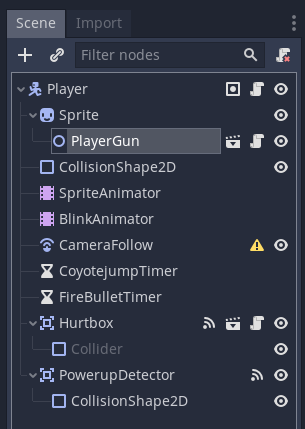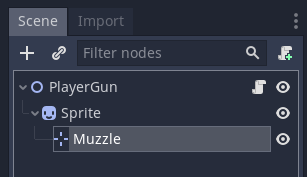get_node(NodePath) fetches a node & can use the NodePath can be either a relative path (from the current node) or absolute. The relative path is typically shorter. When used as a literal you can further shorten the expression to $NodePath.
So with this Player scene:

And this PlayerGun scene:

Then in order to access the somewhat deeply nested Muzzle node from within my script for Player I would do this in 3.x:
onready var muzzle = $Sprite/PlayerGun/Sprite/Muzzle
or this in 4.x:
@onready var muzzle = $Sprite/PlayerGun/Sprite/Muzzle
Because I'm using a relative path, I don't need the full / absolute path. As as a bonus, the absolute path could possible change, but as long as I don't change the relative relationship between Player and Muzzle nothing breaks.
get_node() is more performant than find_node(). find_node() has to do a pattern matching search for its target whereas get_node() uses a hash map to children (which is also how unique scene nodes work).


